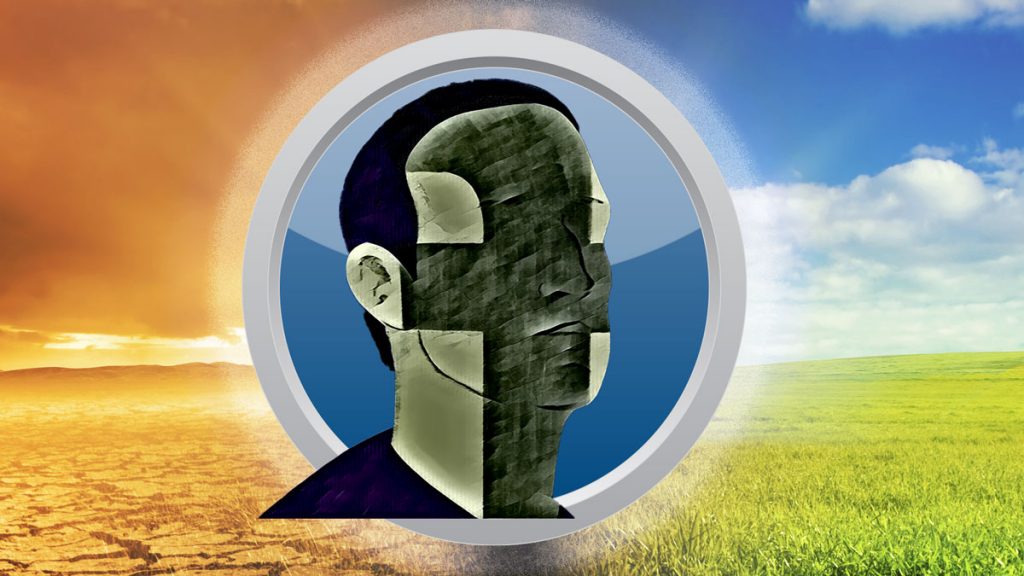Apple
Facebook, Google, Antitrust and the All Pervasive Underestimation of the Big Tech Threat
Published
4 years agoon

Above: Photo Collage / Lynxotic / Adobe Stock
The opinions expressed “pro” or “con” regarding big tech abuses of power are both overlooking far more serious issues that lie beneath
After years of public and insider opinion gradually shifting from a state of wonder, awe and hero worship of tech giants and their founders and CEOs, toward a more skeptical stance, and now, finally, government action begins; the fundamental issues that lie beneath are still barely mentioned, let alone widely understood.
In a filing at the U.S. District Court in Washington D.C., on December 9th, 2020, the Federal Trade Commission, together with 46 states, plus the District of Columbia and Guam, alleged that Facebook employed anticompetitive tactics, allowing it to bully and bury its rivals. In a strongly worded brief it recommends that the massive company be broken up, specifically by divesting itself of Instagram and WhatsApp.
While past antitrust cases were complex and difficult to understand fully, particularly for the general public, from the little known A & P case in the 30s and 40s to Standard Oil and Ma Bell / AT&T, in each case there were complex issues to address.
However, one simple thing tied them together that could be understood by virtually anyone: businesses that have a win-at-all-costs approach to business tactics and then achieve monopoly power almost always use that power to fulfill ambitions based on self-perpetuating greed at the expense of society as a whole.

Many, from all walks of life, particularly in the U.S., worship the ethos of “winner take all” and even if they are at the lowest levels of the economic ladder still cheer on the most ruthless and morally bankrupt “winners” as heroes, using a bizarre logic, that somehow they might one day see themselves in the winners circle.
This perspective is similar to societies where dictators, such as Ferdinand Marcos in the Philippines, or emperors are worshiped fervently by the very people that are most exploited and downtrodden under their regimes. Perhaps this is a hardwired genetic human trait, impossible to alter.
In the case of tech giants of the internet era, beginning with Microsoft and its antitrust case, a similar dynamic is no less present, and, no different from the steps that dictators take to encourage obedience and worship from their subjects. In this case it’s massive amounts of money and power used for required self-serving PR and the brutal economic repression of any dissenting voices.
Try to find a book on Amazon’s Jeff Bezos that is not a hero-worship nonsense-title purporting to offer you a way to become a “business genius” like him. You will find a few exceptions, of course, these purporting to offer “hard-hitting” investigative journalism and a sober look at the “real facts”.
These will be watered down, meekly subservient, weak and impotent tombs barely scratching the surface of any negative perspectives on the real problems Amazon and its founder have created, not only for millions of people around the world but for society as a whole.
Even among those that are the most incisive and have a real desire to “dig-deep” and reach the roots of the real problems, there is often still the a priori assumption that somehow, the 26 year evolution of business models that could “succeed” in internet and software based business are to be measured on a scale that presumes that the business models themselves are basically valid, simply because they were able to survive and create massive, nearly immeasurable, wealth for a tiny handful of individuals. .

Taking into account the pervasive pro-big-business bias, it is a miracle in a sense, that the public opinion has shifted so far, to the point where antitrust actions can be seen as valid, by enough of the public at large, that these giant monopolistic tech companies are called into question at all.
The miracle, if we call it that, is only a reflection of just how purely evil and out of control the situation has become, and how many people have been harmed, and in how many different ways this harm has occurred.
From teen suicides to thousands of bankrupt and struggling small businesses to privacy rights trampled in the dirt, the list of abuses and harm, if it were ever brought to light, could fill a thousand page treatise and would read like a recounting of the atrocities of war.
And then there’s the fact that the war is fought with computer code and over territory that has no physical address
Much as collateralized debt obligations and other arcane “synthetic” financial products nearly collapsed the entire world economy in 2008, partially due to the intentional complexity, which served only to hide the stupidity, complex computer algorithms are now at the heart of an ever larger and even more dangerous economic debacle that continues to unfold.
And much of the lack of any pushback against this is the simple ability to hide behind the complex computer methods and concepts that have allowed tech giants to build an even bigger and more dangerous kind of monopolistic behavior than even the so called “Robber Barons” of the Gilded Age.
Even those, in government or in the press, who are pushing back are doing so with, apparently, little understanding of the real dangers that are buried in the code and in the tricks used by very sophisticated, technologically educated people in control of these trillion dollar behemoths.
For example, Facebook is already claiming that the government should not be able to question the acquisitions of Instagram and WhatsApp because they already approved the mergers at the time they happened.
In his excellent article published on medium.com , Will Oremus points out:
But I looked up the FTC’s public statements following those reviews, and it states explicitly that the matter should not be considered permanently settled.
“This action is not to be construed as a determination that a violation may not have occurred,” the FTC’s closing letter said. It added, “The Commission reserves the right to take such further action as the public interest may require.” Facebook did not immediately respond to a request for comment.
Also in that article, titled; ‘Competition Is for Losers’: How Peter Thiel Helped Facebook Embrace Monopoly the idea succinctly embodied in the title which refers to a Wall Street Journal piece on Thiel’s book “Zero to One” which he describes as having been “embraced as a business bible in Silicon Valley and beyond” and quotes from including this characterization:
(Thiel) made the case for monopoly as the ultimate goal of capitalism. Indeed, “monopoly is the condition of every successful business,” he asserted. With it, you’re free to set your own prices, think long-term, innovate, and pursue goals other than mere survival. Without it, you’re replaceable, and your profits will eventually converge on zero.
And this provides the context within which the current struggle unfolds. To understand the real dangers of the total domination of the internet, which has become the vital lifeline of our economy and social existence, by a handful of trillion dollar companies, that not only embrace limitless greed and dictatorial status within their industry, but see it as the divine right that they hold, and believe they are entitled to aspire toward without interference.
And in another context such behavior would be known as immoral, destructive to society and social justice, and if the laws are adequate to apply; criminal.
And there’s the rub. The antitrust statutes, possibly already inadequate to take on this new kind of robber, have also been weakened since the 80s. Add to that how the pre-existing biases are heavily slanted toward minimizing any accountability for such behavior and is follows that any real reform must rise from the public at large.
The birth of the internet was anything but immaculate
The tragi-comic farce of the story, when seen through the lens of internet history, is how Facebook, Google and Amazon all followed the same absurd arc.
From “underdogs” with massive losses and no income to ridiculously “valuable” “FANG” members championed from the rooftops as heroic winners of darwinian battles to build out the internet for profit. And, finally, after decades of unfettered expansion, being seen more and more for what they are: profit-seeking scams using each a different method to restrain competition and destroy the most valuable asset humanity has ever built: the internet itself.

The complexity of the scams is still the most useful cloak for them to hide behind, each with a different insanely complicated way to force what is a public asset, the internet, into a tool for private greed, at the expense of any real innovation. And the victims are not the competitor firms that they might have destroyed (or bought), but rather the entire population of any territory that they control, with North America being the center of the empire.
The question asked for example of Google or Facebook should not be, “do they provide any services from the public can benefit, in exchange for their obscenely privileged monopoly control over “search” and “social networking”, respectively. The question should be “are they the best possible solution, from the perspective of what is in the best interest of society, for those extremely important functions in our new digital world.
It is not enough to say that “consumers have chosen” each as their go-to tool. If any company or group of companies could do a better job of enabling humanity to communicate, interact and become educated via the internet, why should those other solutions be buried forever under a mountain of greed and self-interest?
This is the infinitely elusive point: No different than Bernie Madoff, the damage they have wrought, by destroying what could have been, will only be understood once they are either gone or forced to cease what they depend on for domination, which would lead to their ultimate demise over time, just as Peter Thiel himself stated:
Without (a monoply), you’re replaceable, and your profits will eventually converge on zero.
Or as Jeff Bezos explained, in what his become his predatory raison d’être: The competition is always one-click-away. This makes every other online seller, in his view, an enemy that must be destroyed at all costs, no matter how small, no matter how weak.
In this sick paranoid view of the world it is truly an all or nothing struggle for survival, with death of all competitors, literally and figuratively, the only acceptable outcome.
With this mindset at the heart of these companies, and with the government and most of the press taking a milk-toast submissive approach (in contrast) the struggle to rein in these monstrous, utterly corrupt empires, will take years if not decades.
However, 2020 will always be seen as the beginning of the end the the gruesome mistake of history that these companies represent.
Companies that achieved dominance and monopoly control of a system meant for public benefit, through the most destructive methods they were able to devise, and then redoubled efforts infinitely to expand using those same destructive and corrupt methods.
In the end there is only one power large enough to intervene, as already at their current size, and while, like a virus, they double in power and economic domination almost annually, and that is the power of the billions that use their platforms everyday. Change will arise when they have damaged themselves by damaging the very societies they prey on, and once damaged, those societies will have no choice but to shed them like the murderous parasites that they are.
That will not happen anytime soon. The general view of these companies, is still very mild and forgiving. And it’s important to note that each case is different and this article applies only to Facebook, Google and Amazon.
Just as most have either forgiven or forgotten the massive bailouts that criminal companies were gifted during the 2008 financial crisis, the perception that these massive tech companies are at worst mildly anti-competitive and at best harmless and just practicing good, successful capitalism, will not be changed overnight.
It can only come after much more pain at the hands of this corrupt system that currently controls the internet, and therefore, our digital lives.
Subscribe to our newsletter for all the latest updates directly to your inBox.
Find books on Music, Movies & Entertainment and many other topics at our sister site: Cherrybooks on Bookshop.org
Enjoy Lynxotic at Apple News on your iPhone, iPad or Mac.
Lynxotic may receive a small commission based on any purchases made by following links from this page.



